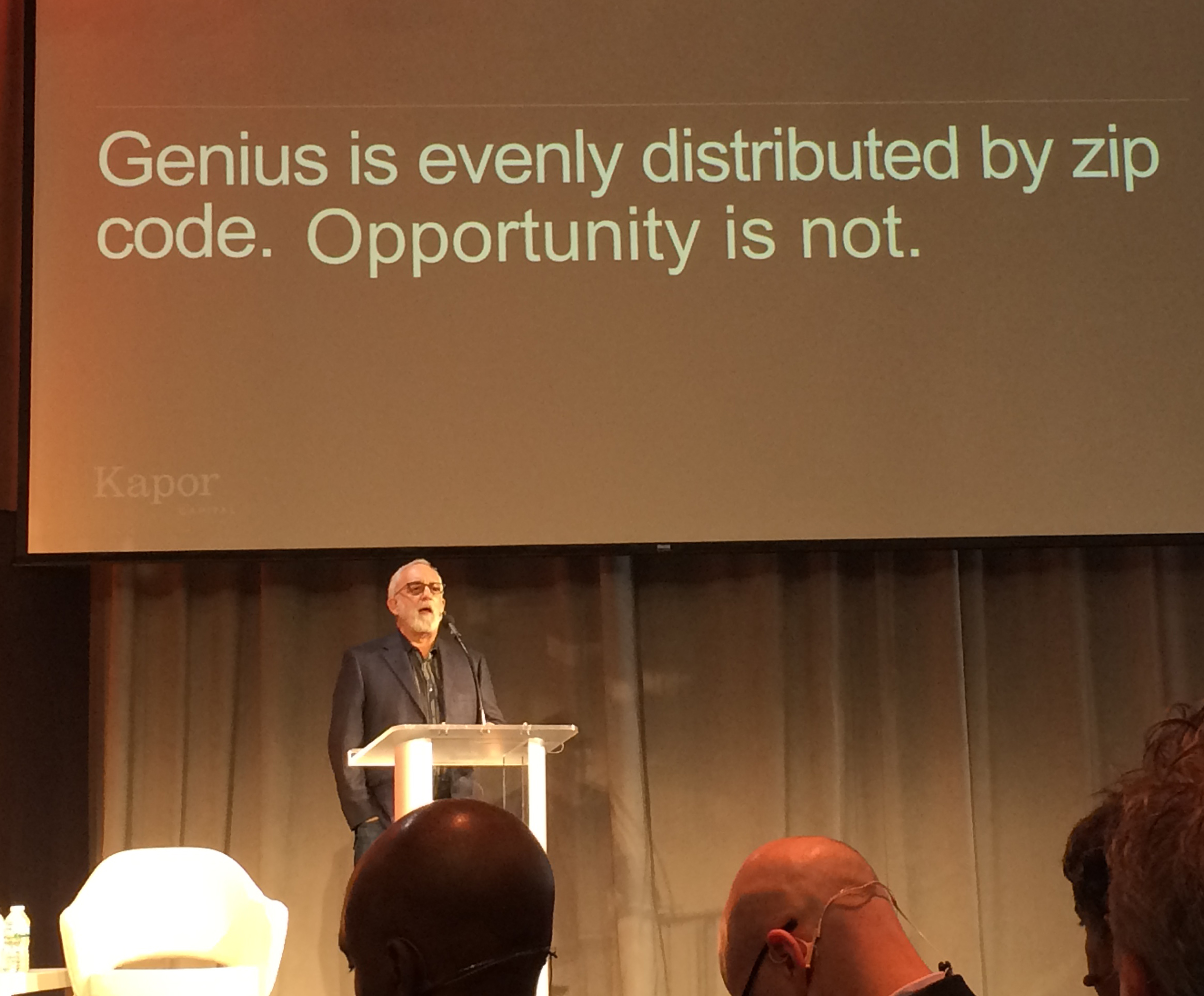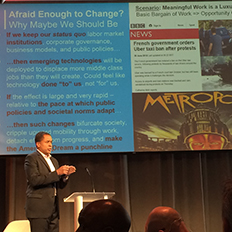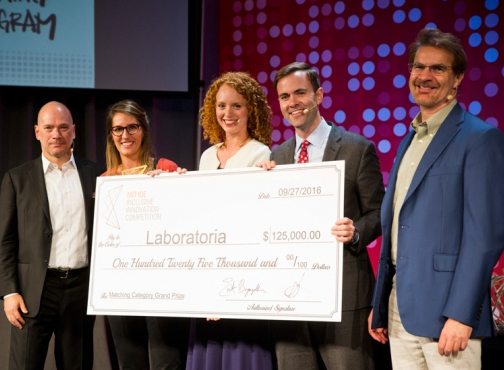Sharing the Digital Bounty
-
-
slice.mit.edu
Filed Under
Recommended

Erik Brynjolfsson PhD ’91 and Andrew McAfee ’88, ’89, SM ’90 are applying the concept in their program, the MIT Initiative on the Digital Economy (IDE). Inclusive Innovation was also key to the Sept. 27 Solve events including a panel of experts who suggested ways to share the bounty and MIT’s Inclusive Innovation Competition (IIC) that awarded $1 million to best ideas.
“It’s the biggest paradox and challenge of our generation,” said Brynjolfsson at the session on Expanding Opportunity in the Digital Age. “Innovation has never been faster but our generation is the first where parents are less confident that their children will do better. The bounty that technology is creating has not been widely shared.”
McAfee, who moderated the session, introduced Byron Auguste, co-founder of Opportunity@Work, a social enterprise that aims to do nothing less than “re-wire the labor market.”

“If we keep status quo labor markets, I believe emerging technology could displace more middle class jobs that it will add,” August said. “It could cripple upward mobility.” A key problem is that job descriptions often call for years of progressive jobs and degrees, which may rule out capable people. “We absolutely can change this” by investing in training, portable benefits, and programs like TechHire, a network that connects employers seeking Americans with IT talent but who may have non-traditional backgrounds.
Speakers from the Joyce and Rockefeller foundations focused on their work on adult literacy and math skills and on youth unemployment, respectively. A Bank of America speaker described the company’s digital tools that broaden access to financial services through streamlined banking and financial education on mobile devices.
Making the gig economy work better for the 30-45 percent of the working-age population that is underutilized was the subject addressed by James Manyika, director of the McKinsey Global Institute. As many as 70 million people in the US are independent workers, he said, but most are not taking advantage of digital tools to get gigs, nor to understand where jobs are abundant. Benefits of independent work included more income opportunities and flexibility both for workers and local economies. Invigorating this gig economy, he said, means creating more benefits and protections, stabilizing income, and developing more tools and services for workers.

The highlight of the day was announcing the IIC winners—tech companies aiming to improve economic opportunity for people from diverse economic levels and social circumstances. Of the 20 winners, four were named as grand-prize champions and received $125,000 each: the work-force training firm Year Up, software job-training firm Laboratoria, apparel maker 99Degrees Custom, and health care delivery service Iora Health. Learn more about the winners.







